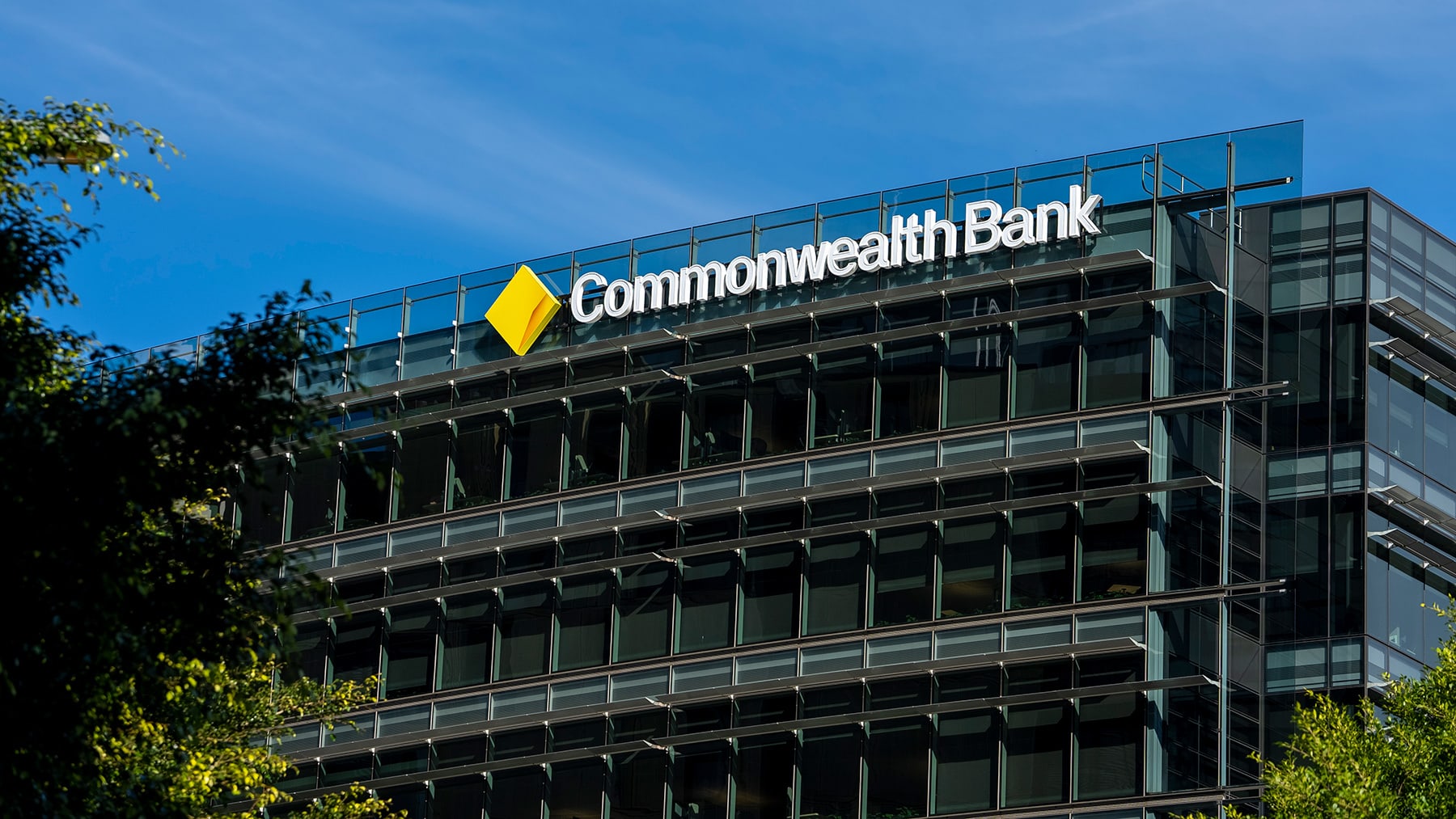Borrow
Are we headed for a recession? Experts speak on the latest GDP figures
The latest GDP data from the Australian Bureau of Statistics show Australia's economic growth falls short of the RBA's expectations. With a looming election, what does this sluggish period mean for investors?
Are we headed for a recession? Experts speak on the latest GDP figures
The latest GDP data from the Australian Bureau of Statistics show Australia's economic growth falls short of the RBA's expectations. With a looming election, what does this sluggish period mean for investors?

The Australian economy grew by 0.2 of a percentage point over the December quarter, below the Reserve Bank of Australia’s (RBA) expectation of 0.5 of a percentage point growth.
What does this mean for Australia?
GDP growth has now slowed below target for two consecutive quarters, prompting analysts to declare that the economy has fallen into a “per-capita (per person) recession”.
For AMP Capital's chief economist Shane Oliver, these latest figures are not good news for Australia, and will only get worst as the housing market's downturn continues.

“Coming on the back of just 0.3 [of a percentage point] growth in the September quarter, this is not good news," he said in a market update.
“It means growth has slowed to 2.3 per cent over the year to December and, even worse, annualised growth over the last six months has slumped to just 1 per cent," he said.
Should I be worried about the housing market?
Property values are cyclical, and typically, the higher the climb, the bigger the fall. Capital cities like Melbourne and Sydney are coming off their biggest price gains in history, and are currently experience GFC-type drops in value.
Mr Oliver noted that GDP growth would be placed under additional pressure as the housing market downturn intensifies.
According to the latest CoreLogic figures, national dwelling values fell by 6.3 per cent in the 12 months to February 2019, largely spurred by a 7.6 per cent decline across Australia’s capital cities, particularly in Sydney and Melbourne where home prices declined by 10.4 per cent and 9.1 per cent, respectively.
Housing approvals data from the ABS has also revealed that, while increasing by 2.5 per cent in January, approvals are down by 29 per cent year-on-year.
The latest Financial Aggregates data RBA has also shown that in the year to January 2019, housing credit grew by 4.4 per cent, slowing by 1.9 per cent when compared to growth of 6.3 per cent reported in the 12 months to 31 January 2018.
Government hits back
Treasurer Josh Frydenberg cooled suggestions that the economy is heading towards broader recession.
“[In] the calendar year, GDP growth is 2.7 per cent and actually indicates that the Australian economy is growing faster than any G7 nation except the United States,” he said.
“When it comes to the health of the Australian economy, the fundamentals are sound.”
Mr Frydenberg went on to note that the unemployment rate has fallen over the years to approximately 5 per cent, adding that the real net disposable income has increased by 2.1 per cent over the year.
The Treasurer added: “[Talk] of recession really is inaccurate because what is the best indicator of a recession is what happens to GDP growth and that has been consistently positive.”
"Housing tax" talk
Mr Frydenberg warned that Labor’s proposed housing policy, which would limit negative gearing to new housing and halve the capital gains tax discount to 25 per cent, would exacerbate the slowdown in the property market.
Making reference to analysis from Treasury, Mr Frydenberg said: “[Treasury] said that Labor’s policy could put downward pressure on housing prices, and also that it could create real problems in a cyclical downturn in the housing market.
“[When] Labor came up with this policy [a] few years ago, [we] were in a different housing market. We’ve seen housing prices come down around 10 per cent in the key markets in Sydney [and] in Melbourne over the last year or so.
“The Labor Party’s policy is designed — in the words of [Shadow Treasurer] Chris Bowen himself — ‘to put downward pressure on prices’.”
Further, new modelling from the Property Investment Professionals of Australia (PIPA) has reported that by limiting negative gearing and reducing the CGT discount, the government would lose $32 billion in revenue over 10 years.
PIPA chairman Peter Koulizos said that the research found that Labor’s assertion that their policy would save $32 billion over a decade was a “flight of fancy”, claiming that the reverse would be true if investors are driven out of the market.
“Investors already pay almost four times in capital gains tax what they receive in negative gearing benefits over a 10-year period, so the government is already ahead financially,” he said.
The PIPA modelling found that an investor who bought a $675,000 property in today’s market would receive approximately $23,583 in negative gearing benefits over a decade but would pay $104,703 in capital gains tax if they sold the asset — leaving the federal government with an $81,118 net gain.
Moreover, according to the research, a Labor government could lose between $10 billion and $32 billion over 10 years, with PIPA adding that fewer investment properties would drive rents higher and further hinder first home buyers from entering the market.

Banking
ANZ’s company-borrower mortgage clampdown: a risk reset with wide spillovers for SMEs, investors and non-banks
ANZ has tightened credit settings for home loans where the borrowing entity is a company — a narrow policy change with broad commercial consequences. It signals a shift in risk appetite across ...Read more

Banking
CBA’s investor-loan win signals a new phase in Australia’s mortgage machine
Commonwealth Bank’s outperformance in investor mortgages isn’t just a leaderboard moment; it’s a proxy for who owns the next growth leg in a broker‑led, increasingly digital mortgage marketRead more

Banking
A divided Big Four signals a two-track 2026: how to profit from rate uncertainty
Australia’s largest banks can’t agree on where the cash rate lands in 2026 — a split that matters more than the number itself. When the price of money is ambiguous, strategy becomes a game of ...Read more

Banking
Brokers own the mortgage funnel: Why a 77% share is reshaping bank strategy in Australia
Australia’s mortgage market has quietly consolidated around one gatekeeper: the broker. With brokers facilitating roughly 77% of new home loans, distribution power has migrated from bank branches to ...Read more

Banking
Commonwealth Bank leads consideration while People First Bank tops satisfaction in YouGov’s latest rankings
In a revealing snapshot of Australia's banking landscape, the Commonwealth Bank (CBA) has emerged as the most considered financial institution among prospective customers, according to YouGov's ...Read more

Banking
End of the easing: what a major bank’s call signals for Australian balance sheets
A major Australian bank now argues the Reserve Bank’s rate-cut run has hit a pause, resetting the risk-free rate narrative across corporate Australia. The Reserve Bank of Australia’s latest Statement ...Read more

Banking
Open banking, real returns: How an Australian brokerage turned CDR data into deal velocity
Open banking is no longer a whiteboard theory—it’s a working growth engine. This case study unpacks how a mid-sized Australian brokerage (“Pink Finance”) operationalised Consumer Data Right (CDR) data ...Read more

Banking
Open banking’s quiet revolution: how one broker’s data play rewrites speed, trust and margin
Open banking is shifting from compliance cost to commercial engine, and early adopters in Australia’s broking market are already monetising the curve. The playbook: consented bank-grade data piped ...Read more

Banking
ANZ’s company-borrower mortgage clampdown: a risk reset with wide spillovers for SMEs, investors and non-banks
ANZ has tightened credit settings for home loans where the borrowing entity is a company — a narrow policy change with broad commercial consequences. It signals a shift in risk appetite across ...Read more

Banking
CBA’s investor-loan win signals a new phase in Australia’s mortgage machine
Commonwealth Bank’s outperformance in investor mortgages isn’t just a leaderboard moment; it’s a proxy for who owns the next growth leg in a broker‑led, increasingly digital mortgage marketRead more

Banking
A divided Big Four signals a two-track 2026: how to profit from rate uncertainty
Australia’s largest banks can’t agree on where the cash rate lands in 2026 — a split that matters more than the number itself. When the price of money is ambiguous, strategy becomes a game of ...Read more

Banking
Brokers own the mortgage funnel: Why a 77% share is reshaping bank strategy in Australia
Australia’s mortgage market has quietly consolidated around one gatekeeper: the broker. With brokers facilitating roughly 77% of new home loans, distribution power has migrated from bank branches to ...Read more

Banking
Commonwealth Bank leads consideration while People First Bank tops satisfaction in YouGov’s latest rankings
In a revealing snapshot of Australia's banking landscape, the Commonwealth Bank (CBA) has emerged as the most considered financial institution among prospective customers, according to YouGov's ...Read more

Banking
End of the easing: what a major bank’s call signals for Australian balance sheets
A major Australian bank now argues the Reserve Bank’s rate-cut run has hit a pause, resetting the risk-free rate narrative across corporate Australia. The Reserve Bank of Australia’s latest Statement ...Read more

Banking
Open banking, real returns: How an Australian brokerage turned CDR data into deal velocity
Open banking is no longer a whiteboard theory—it’s a working growth engine. This case study unpacks how a mid-sized Australian brokerage (“Pink Finance”) operationalised Consumer Data Right (CDR) data ...Read more

Banking
Open banking’s quiet revolution: how one broker’s data play rewrites speed, trust and margin
Open banking is shifting from compliance cost to commercial engine, and early adopters in Australia’s broking market are already monetising the curve. The playbook: consented bank-grade data piped ...Read more








